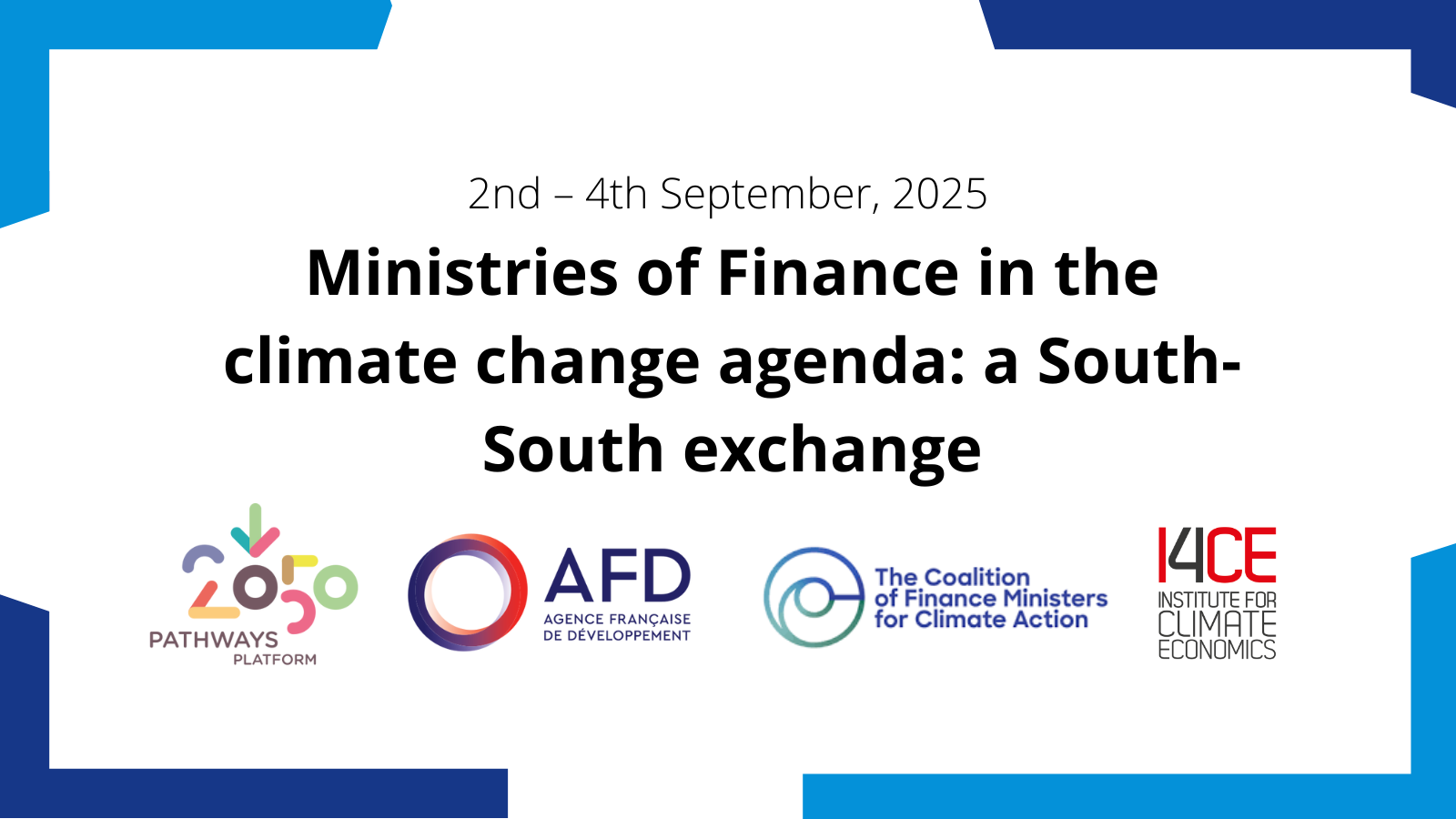Ministries of Finance in the climate change agenda: a South-South exchange
Conferences - By : Sébastien POSTIC, Phd / Diana CÁRDENAS MONAR / Solène METAYERDates: 2nd – 4th September, 2025
Place: Addis Ababa, Ethiopia
Context:
Ministries of finance have a key role to play in climate policy. Their core missions – ensuring fiscal sustainability, promoting economic growth, and allocating scarce resources efficiently – overlap with the risks and opportunities presented by climate impacts and action. Major progress has been made toward ministries of finance taking ownership of climate strategies, yet significant gaps remain: many strategies lack investment needs estimates, funding options, or clarity on public-private roles, and climate plans (NDCs, LTSs, NAPs) are often misaligned with national development or fiscal frameworks.
Peer-to-peer discussions are key to reduce these gaps, share best practices, discuss practical hurdles and interests of green budgeting tools such as green debt, pollution pricing, private mobilization strategies, taxonomies, budget tagging or green public procurement.
Regional cooperation, both between countries within a region and between regional platforms, is also a major factor of success in reducing policy gaps, improving overall knowledge, raising the profile of climate action in Ministries of Finance, converging towards regional shared agenda and dealing with the regional specificities of climate action.
Objective:
This workshop aims to foster an exchange of experiences among senior officials from Ministries of Finance across Africa and Latin America and the Caribbean (LAC) and to chart a collective path ahead, through concrete, pragmatic discussions. It also aims to build on LAC regional collaboration experiences, notably the LAC Regional Climate Change Platform of Economy and Finance Ministries, to shape the workplan of the upcoming African Platform of Finance Ministers.
Format:
In-person event, by invitation only. The workshop includes plenary thematic sessions, comprising presentations of country experiences followed by discussions, as well as small group exchanges.
This South-South exchange is an initiative of the 2050 Pathways Platform and the French Development Agency (AFD) in collaboration with the Coalition of Finance Ministers for Climate Action and the Institute for Climate Economics (I4CE).
Agenda:
1st Day – September 2nd
- Green budget tagging
- Presentations by Dominican Republic and Kenya
- Taxonomy
- Presentations by Mexico, Uganda, Zambia
- Green bonds
- Presentations by Mexico, Chile, Colombia
2nd Day – September 3rd
- Adaptation and disaster risk financing
- Presentations by Kenya, Colombia, Cameroon
- Private participation and mobilization strategies
- Presentations by Mexico, Uganda, Sierra Leone
- Governance and institutional arrangements
- World café discussion
3rd Day – September 4th
- Regional cooperation experiences in Latin America
- Presentations by Chile, Colombia, Mexico
- Presentation and discussion of the African Platform Concept
- Thematic sub-group work




